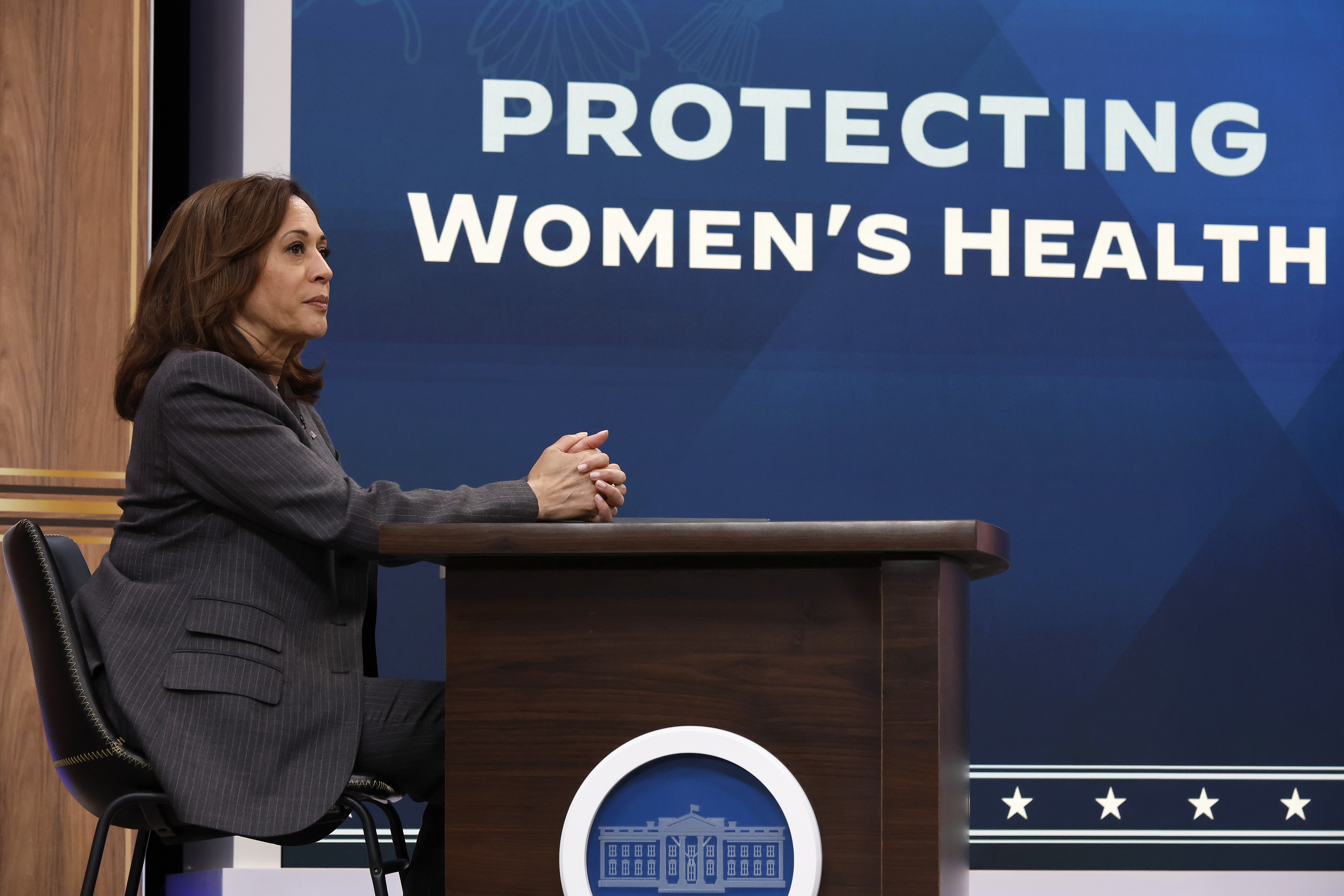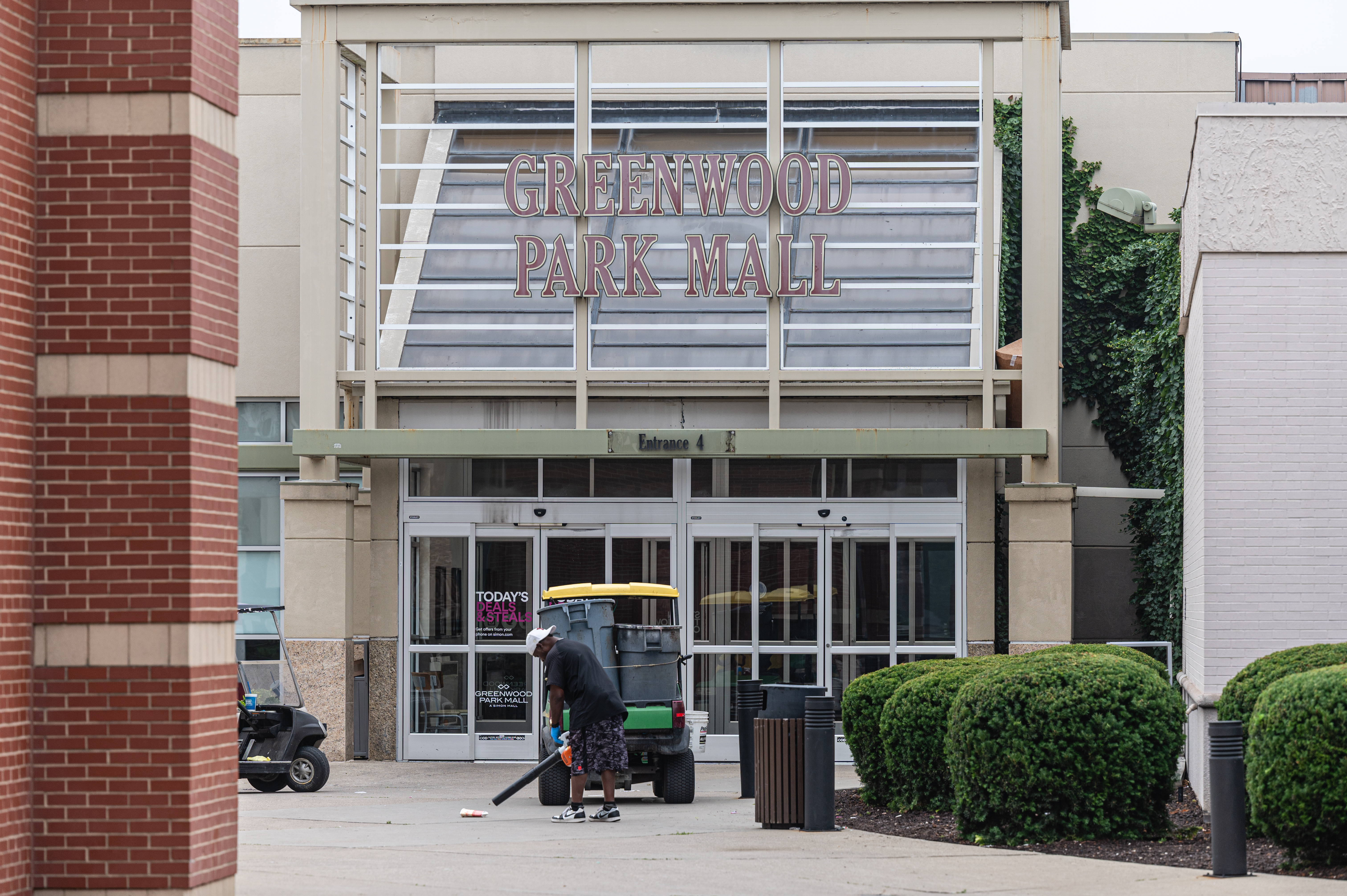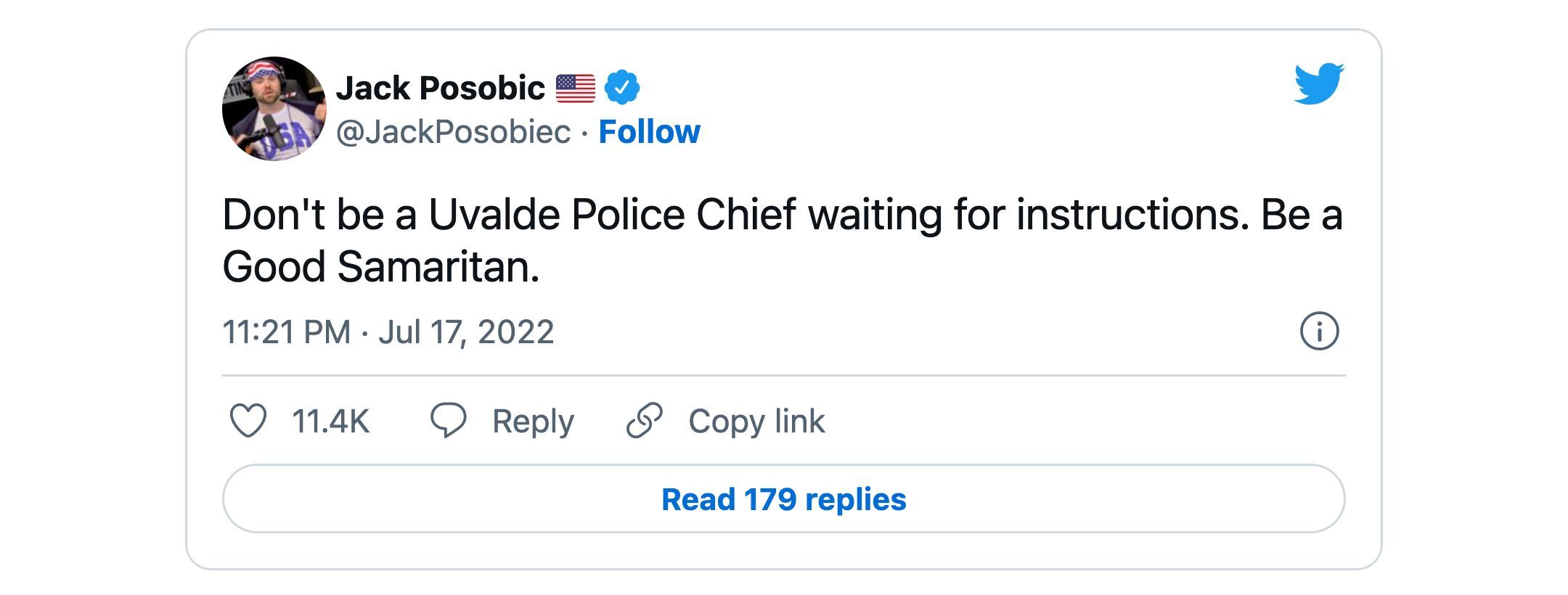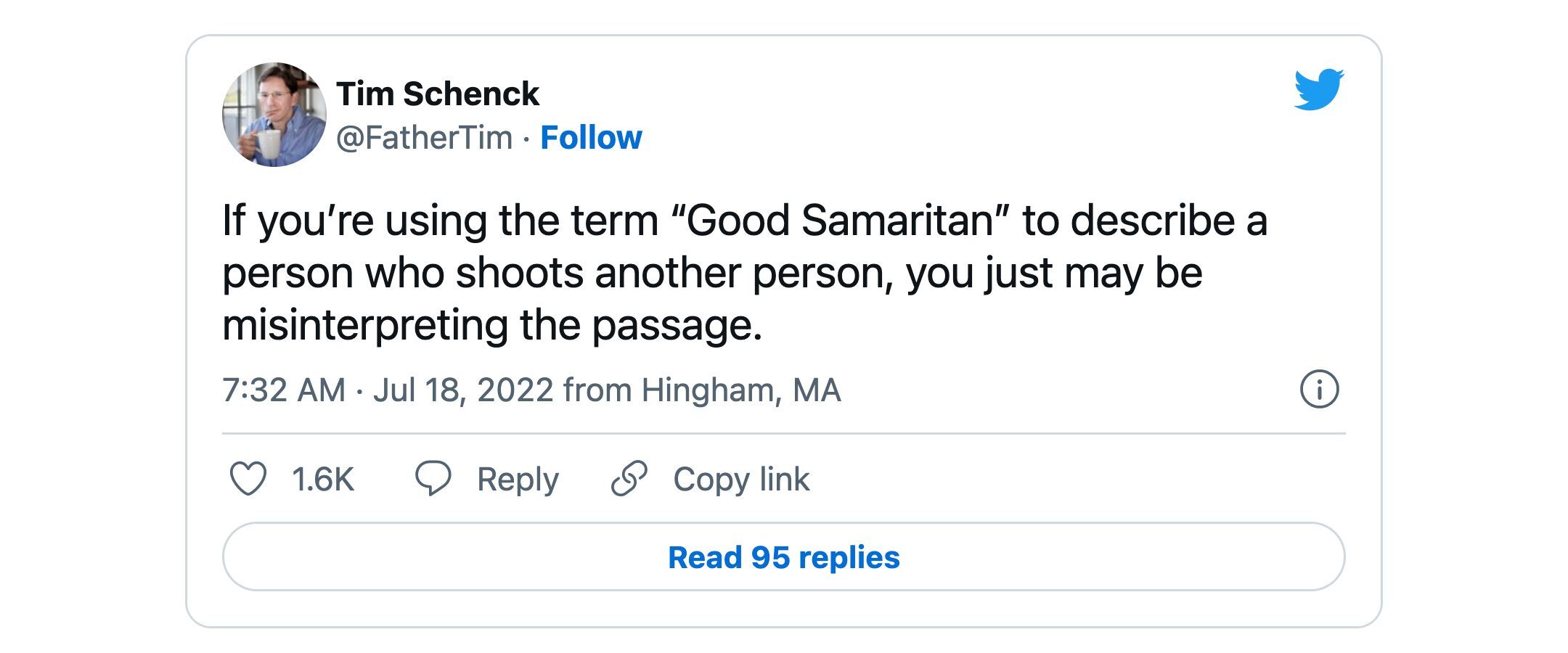| | |  | BY MEGAN MESSERLY | | With help from Calder McHugh FRONT AND CENTER — “Away from the national spotlight.” “ Not being put in positions to lead.” An “afterthought.” Vice President Kamala Harris has faced her fair share of negative coverage since taking office as she has mostly taken a back seat to President Joe Biden. Now, that’s starting to change. With Democratic frustrations running high and Biden under pressure from abortion-rights advocates to respond to the Supreme Court decision overturning of Roe v. Wade, Harris is emerging as a focal point of the administration’s response — and perhaps its most forceful voice. While abortion is not formally part of her portfolio as vice president, Harris has served as the leading edge of the administration’s fight for reproductive rights in recent months, from her “How dare they” speech to EMILY’s List the day after the draft Supreme Court decision was revealed in May to now traveling the states to meet with lawmakers on abortion rights. The conversations — in Washington, D.C., Orlando, Philadelphia and Atlantic City over the last week and a half — are allowing the vice president to take a renewed role on the frontlines of the fight for reproductive rights, which she has been involved in going back to her days as California attorney general. And, in a moment of uncertainty about who will carry the mantle of the Democratic Party forward post-Biden, whether in 2024 or 2028, the meetings have put her front and center in a conversation over how abortion rights will play out in the states in a post-Roe paradigm. Her meetings with Democratic state lawmakers are establishing her as the go-to resource for Democratic state lawmakers as they look for innovative ways to combat new abortion-related restrictions in the coming weeks, months and years — and earning her plaudits within the party that could be helpful to her in 2024 and beyond.
| 
Vice President Kamala Harris delivers brief remarks at the beginning of a virtual meeting of abortion providers in the Eisenhower Executive Office Building in May. | Chip Somodevilla/Getty Images | “I didn’t know what to expect, but I thought maybe, you know, it would be like the queen coming in sort of. But she is understated, and she just sat down and was very warm to each of us,” Nebraska state Sen. Patty Pansing Brooks told POLITICO. “She spent an hour talking with us, which I was blown away with.” “There was some talk about her coming to various states to support this and to be a part of the battle and to show that she’s there in spirit and in person,” Brooks added. “I mean, I think that we all walked away feeling pleased, felt like we had an ally. We felt like it was a partnership, which we didn’t feel necessarily before.” South Dakota state Rep. Erin Healy said it was helpful “to have that kind of conversation with somebody who is so strong at setting the national policies and national story” — a nod to the vice president’s coalition building skills. And these meetings are just the beginning. Harris will be traveling two to three times a week in the coming weeks to tout the administration’s priorities and meet with lawmakers on the frontlines of the fight for reproductive freedom, according to a source familiar with the vice president’s plans. In closed-door conversations, Harris has been encouraging state lawmakers to focus their messaging on how abortion bans should be viewed as government interference with patient privacy and freedom and to underscore that they aren’t trying to change anyone’s religious beliefs; she’s also been trying to help state lawmakers share best practices and innovative ideas on how to expand abortion access. Democratic lawmakers in states that are trying to restrict abortion access have been very receptive to that messaging, saying they plan to use it to reach across the aisle to appeal to their more moderate counterparts. “The vice president was very astute, I think, in terms of encouraging us to message in a way that is inclusive, in the sense that we will need a coalition of Americans to try and win back these freedoms over time, and it will take not only Democrats but Republicans,” said Florida state Rep. Fentrice Driskell, the incoming House majority leader. “It’s not so much about Democrat versus Republican as much as it is about these being fundamental American values rooted in freedom and in liberty to make the most intimate decisions relating to heart and home.” In those conversations — and in her speech to the NAACP National Convention in Atlantic City on Thursday — Harris has also been tying together the fight for reproductive freedoms with debates over gun violence and voting rights. “I asked my team, I said, ‘Do a Venn diagram on two circles for me and, in particular, the overlap of states that are attacking the freedom to vote and attacking women’s freedoms over their own bodies. There are 10 states that are doing both,” Harris said. “Here’s the point: Our freedoms are all connected.” Harris’ advocacy on this issue comes at a key moment, as party worries over 2024 bubble up and the list of prospective Democratic White House hopefuls expands to include those who are speaking forcefully and combatively to the concerns of the party leaders and the base, whether it’s on abortion rights or gun control. Welcome to POLITICO Nightly. Reach out with news, tips and ideas at nightly@politico.com. Or contact tonight’s author at mmesserly@politico.com or on Twitter at @meganmesserly.
| |
| | HAVE QUESTIONS ABOUT ROE BEING OVERTURNED? JOIN WOMEN RULE ON 7/21: Now that the Supreme Court has overturned Roe v. Wade , abortion policy is in the hands of the states and, ultimately, voters. Join POLITICO national political correspondent Elena Schneider for a Women Rule “ask me anything” conversation featuring a panel of reporters from our politics and health care teams who will answer your questions about how the court’s decision could play out in different states, its impact on the midterms and what it means for reproductive rights in the U.S. going forward. SUBMIT YOUR QUESTIONS AND REGISTER HERE. | | | | | | | — Bannon trial set to open Tuesday as jury selection winds down: Opening arguments are scheduled to begin Tuesday in the criminal trial of former Trump White House adviser Steve Bannon, after a federal judge selected 22 potential jurors to sit in the contempt-of-Congress case. The selection of a prospective jury today — capping a full day of vetting to screen out anyone who seemed particularly biased against or hostile to Bannon — clears the way for opening arguments to begin Tuesday in a trial that prosecutors say should be complete before the weekend. — Congressional staffers file for union recognition: Staffers in eight House offices will exercise their newly granted right to organize and will file for union recognition today. In May, the House voted to allow close to 10,000 of its employees to bargain collectively and form unions, but the rights did not go into effect for 90 days. These eight offices, all those of Congressional Democrats including progressives like Ilhan Omar, Cori Bush, and Alexandria Ocasio-Cortez, saw full participation of eligible union staff. The filing today is expected to be just the first salvo in a wave of organizing.
| |
| | A message from American Energy Action: Clean Energy is the Way Forward: Investing in renewable energy reduces our reliance on foreign oil and boosts our nation’s energy independence while providing lower, more consistent costs for consumers. Learn more. | | | — Val Demings has Covid: The Florida Representative announced that she contracted Covid-19 after attending the Florida Democratic Party’s Leadership Blue Convention in downtown Tampa over the weekend, writes Hannah Farrow. Demings is self-isolating with mild symptoms. — Manchin insists he’s not walking away from Dems-only talks as colleagues fume: The West Virginia Senator said today that he’s not walking away from talks just because he wants to wait until September. “I haven’t walked away from anything. And inflation is my greatest concern because of how it has affected my state and all over this country, and that’s all I have to say,” Manchin told reporters. But colleagues of his, like Senate Majority Whip Dick Durbin, are frustrated, saying the caucus has “wasted a lot of time on negotiation.” Meanwhile, Senate Republicans are readying their own arguments in a bid to eject more items from the ever-slimmer package Democrats once called Build Back Better.
| |
| | A message from American Energy Action:  
| | | | | IT’S A SCORCHER — Europe is in the grips of a fierce heat wave, with temperatures this week set to break new records — possibly leading to thousands of excess deaths, writes Victor Jack and Karl Mathiesen. In countries including the U.K., France, Germany, and Spain, temperatures are all climbing well above 100 degrees Fahrenheit, potentially reaching close to 110 in England this week. These high temperatures lead to higher risks of heatstroke and heat exhaustion. The body sweats in an attempt to cool itself down, but when temperatures rise above the average body temperature of 98.6 degrees Fahrenheit, sweating becomes less effective. Also, buildings in Northern Europe are not designed to deal with heat waves like this one — rather, they are built to prioritize keeping heat in during cold winters.
| 
A tourist from Madrid walks along the beach in Benidorm, Spain while covered with sunscreen in the midst of Europe's heat wave. | Zowy Voeten/Getty Images | Because heat places the body’s cells and organs under stress, it tends to exacerbate existing conditions and vulnerabilities. Particularly among the sick, older people and the very young, the strain of dealing with high temperatures can take a serious toll several days, or even weeks, later. These sorts of heat waves will become more frequent in decades ahead due to climate change disrupting weather patterns.
| |
| | A message from American Energy Action: CLEAN ENERGY IS THE WAY FORWARD: Investing in renewable energy doesn’t only reduce our reliance on foreign oil—It provides lower, more consistent costs for consumers and sets our nation on a path toward decarbonization. Learn more. | | | MOVING DAY — President Volodymyr Zelenskyy’s removal of two top law enforcement officials Sunday may indicate the fraying of an unofficial agreement among political factions to pause politicking and present a unified front against invading Russian forces, writes Christopher Miller. Many Ukraine political experts and anti-corruption experts see these moves, accomplished by presidential decree, as Zelenskyy taking advantage of extraordinary wartime authority to consolidate his power. “It’s not a move to do the right thing. It’s a move to gain more control over our top law enforcement bodies,” according to Tetiana Shevchuk, a lawyer and activist at the Kyiv-based Anti-Corruption Action Center.
| |
| | Congressional Vision for Tech Across America – July 21 Event : How can innovation play a role in America’s global economic leadership? On July 21, Rep, Gerry Connolly (D-VA), Rep. Tom Emmer (R-MN), Rep. Trey Hollingsworth (R-IN), Rep. Ro Khanna (D-CA), Sen. Jacky Rosen (D-NV), Rep. Mikie Sherrill (D-NJ) are sharing Congress’ vision for the future of policy and technology surrounding workforce and education at MeriTalk’s MerITocracy 2022: American Innovation Forum. The forum will feature Hill and White House leadership and industry visionaries as they dig into the need for tangible outcomes and practical operational plans. Save your seat here. | | | | | | | | |
34 The number of consecutive days the U.S. has seen a decline in average retail gas prices, White House economic adviser Jared Bernstein said during today’s press briefing. The price of gas is down 50 cents per gallon over this period, what Bernstein touted as a trend and not just a “daily blip.” |
| | | | 
A mall employee works outside of Greenwood Park Mall today. Yesterday, a gunman reportedly used a rifle to open fire within the mall food court, killing three and injuring two before being shot and killed by an armed bystander. | Jon Cherry/Getty Images | BIBLICAL BRAWL — Four people died yesterday, including the suspected shooter, after an attack at a mall in Greenwood, Ind. The shooter was fatally shot by a 22-year-old in the mall with a handgun. The police chief of Greenwood said at a news conference that “The real hero of the day was the Samaritan that was lawfully carrying a firearm who was able to stop the shooter almost as soon as it began.” Debates around the topic of guns, and who should be carrying them, have split down familiar lines, but a new dimension to the discussion has emerged with this case: namely, whether the man who shot the mass shooter was a “good Samaritan.” And these fights have become especially charged in the wake of the Uvalde shooting report that stated “egregiously poor decision-making” led to inaction on the part of the police, writes Nightly’s Calder McHugh.
| 
Twitter | | 
Twitter | We have more than just gun control to argue about now. People from different camps, like far-right activist and commentator Jack Posobiec and Episcopal priest and author Tim Schenck, have gone back and forth about what the Parable of the Good Samaritan means in this context. For what it’s worth, Good Samaritan laws are those that offer legal protections for people helping those in need, such as a bystander assisting someone after a fall without fear of being sued if they accidentally injure them further. This is where we wade into strange territory, though. Greenwood’s police chief, and most of those who are debating the shooting, seem to be vacillating between referring to the Bible passage and the 22-year-old’s protections under any Good Samaritan law, with debate focused on the former but occasionally moving into the latter. The issue at stake is the narrative — accepting that a second shooter falls into a “Good Samaritan” legal protection means also accepting that the 22-year-old was essentially right to bring a gun into a mall. The fever pitch of the gun debate makes it hard to find nuance. Is it possible to praise someone for heroism while also acknowledging that the frequent need for that kind of intervention in the likes of a shopping mall or a school possibly points to a problematic relationship with guns in America? Did someone forward this email to you? Sign up here. | |
|
| | Follow us on Twitter | | | FOLLOW US | | |
| |

No comments:
Post a Comment
Note: Only a member of this blog may post a comment.